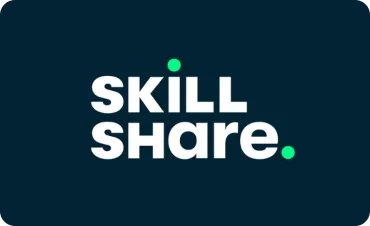When you enroll through our links, we may earn a small commission—at no extra cost to you. This helps keep our platform free and inspires us to add more value.

Managerial Cost and Budgeting Skills: Easily learn management productivity to become a super star
Unlock creativity with Skillshare! Learn acrylic painting, AI writing, graphic design, and photography.

This Course Includes
 skillshare
skillshare 0 (0 reviews )
0 (0 reviews ) 5 hours 26 minutes
5 hours 26 minutes  english
english Online - Self Paced
Online - Self Paced course
course SkillShare
SkillShare
About Managerial Cost and Budgeting Skills: Easily learn management productivity to become a super star
Managerial Accounting Introduction
An Overview of Managerial Accounting
Managerial and Financial Accounting
Trends in Managerial Accounting
Foundational Concepts
Product Costs
Profitability
Processing vs Job Costing
Job Costing Material Costs
Job Costing Labor and Overhead
Allocating Costs for Multiple Products
Departmental Overhead Rate
Activity Based Costing
Cost Behavior
Fixed and Variable Costs
Break Even Point
Changes in Break Even Point
Sales Mix
Pricing
Short Term Decision Making
Introduction to Budgeting
Master Budget
Operating Budgets
Cash Budget
Budgeted Balance Sheet
Performance Evaluation
Performance Evaluations with Variances
Flexible Budgets
Standard Setting
Standard Cost Variances
Capital Investment Decisions
Capital Investment Analysis
Managerial Accounting Conclusion
What You Will Learn?
- Managers must make important decisions every day..
- There are many decisions a manager needs to make. Managerial accounting provides tools for managers to improve their decision making. .
- Do you want to be the manager that understands proven approaches to successful strategy?.
- In this course we will cover the foundational topics needed by successful managers. .
- We’ll begin our journey into managerial accounting with an overview. Managerial accounting focuses on improving management decision. We’ll take a peek into developing trends in management reporting and new information that will change the way managers approach their business..
- The cost of doing business is a key element of any organization. In this section we begin with various methods to assign costs to jobs. We’ll then look at alternatives for assigning costs to products. Better allocation of costs will improve your ability as a manager in making decisions planning, directing, and controlling the business.
- A key to success in business is profitability. You will develop your understanding of costs and learn how it relates to calculating profitability of a business. Once that is better understood, you are on your way to improved decision making.
- Costs are not just dollar amounts that managers subtract from revenue. Costs are more complicated than just that. Instead, costs behave in different ways, so managers need to treat costs based on their cost behavior. By understanding cost behavior, we can then develop analysis such as break-even point or targeting profits..
- Budgeting is one of the most common and powerful tools used in business. Budgets are used by businesses of all makes and sizes. Without budgeting, managers lack information for planning. Budgeting helps managers mitigate risk. You will also learn how budgeting provides feedback for continued improvement..
- Managers must invest in the business if they want to sustain operations for the long run. But when should managers invest? How much should be invested? How can managers compare multiple opportunities? What kind of analysis is appropriate for capital investment decisions? This final section will cover all these questions..
- Join me in learning managerial accounting!.